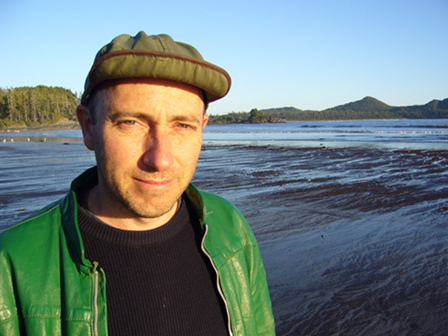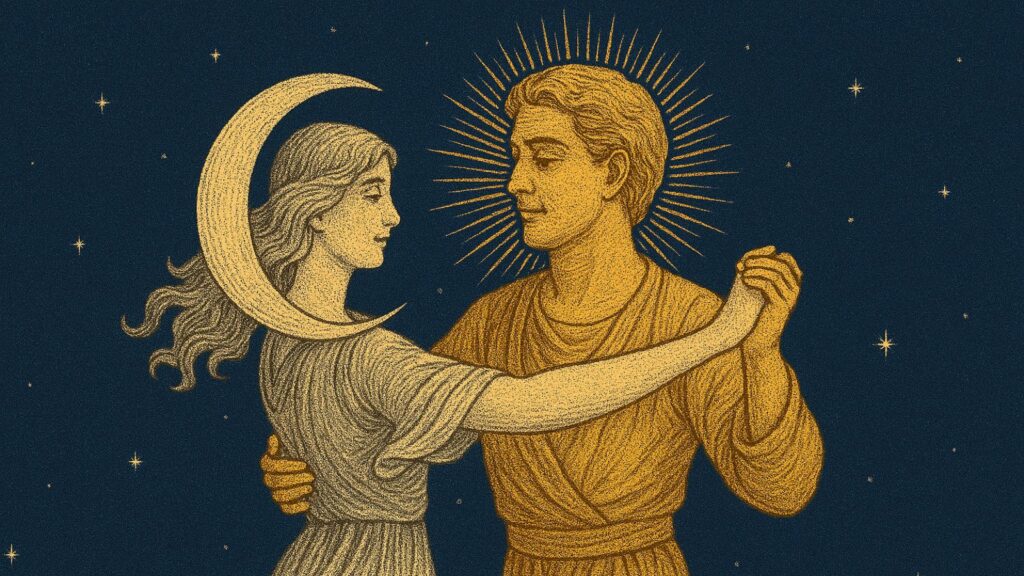"Power without love is reckless and abusive. Love without power is sentimental and anemic." These words of the late Dr. Martin Luther King echo throughout Occupy Love, the latest documentary by Velcrow Ripper, and by all accounts they serve as a guiding principle in the Canadian filmmaker's own life.
Raised in the Baha'i faith, Ripper gained an early appreciation of religious unity that was later infused with the edgy individuality and creativity of the punk rock scene, from which he gained both his name and his passion for social justice. Since that time, he has been crafting award-winning films that explore the rich overlap of activism and spirituality.
In a recent interview with Velcrow, I began by asking him how he came to inhabit this intersection of doing and being, of outward and inward focus. He explained that although he has always felt at home in this sphere, he experienced a kind of awakening in 2004 while filming Scared Sacred, which documented his pilgrimage to the Ground Zeros of the planet and explored the question of how to transform horror into hope, crisis into creativity. "I kept meeting these remarkable people who maintained their dignity and grace amidst great tragedy and loss. They all did this, I discovered, by finding meaning in their suffering." Immediately I thought of Victor Frankl, concentration camp survivor and author of Man's Search for Meaning who exemplified Nietzsche's saying that "He who has a Why to live for can bear almost any How."
"Back then," continued Velcrow, "few activists used the word ‘love,' but that's what I was seeing and learning — love in action. Not a Hallmark kind of love, but a fierce kind of love that Gandhi called satyagraha or soul power." Picking up on this thread, Velcrow would weave it into a series of films, the next being Fierce Light: When Spirit Meets Action, in which the filmmaker delved deeper into what is now commonly called "sacred activism" by interviewing some of the brightest luminaries of our day.
Occupy Love represents the third film in the series. Originally entitled Evolve Love, it began as an investigation of global warming, posing the provocative question: "How can the climate crisis be understood as a love story?" As if in response, a wave of revolutions swept across the Arab world and then Europe, finally crashing on American soil in the form of Occupy Wall Street. In each case, Velcrow was there to capture the stirring footage that appears in the film. From the initial gathering in Zuccotti Park to the violent crackdowns by police, the day-by-day drama of the Occupy movement is presented alongside vignettes illuminating the overarching issues of our day, such as ecological destruction, economic disparity, and human rights.
"What do you say to those who insist that the Occupy movement is over?" I asked Velcrow, "To those who might view the film as a kind of memorial?"
"To see the film in this way is to miss the point," he responded. "First of all, Occupy is still alive in different forms, whether Occupy Sandy or the Strike Debt movement, or Idle No More, or Transition Towns, or the emerging gift economy. What's more, the film is really about the heart of Occupy. It's about compassion in action. It's about love. It's about the big picture."
Despite its expansive view, Occupy Love remains deeply personal, partly through the occasional narration provided by the director himself, who favors open-ended questions above heavy-handed assertions. Indeed Velcrow's humility and humanity shine through all of his films, as does his reverence for our ailing planet and its inhabitants. "It's easy to feed into the necrophilia, the death instinct that pervades our culture," he explained, "so I try to focus on biophilia — love of life."
"How do you do this?" I asked. "Do you have a specific spiritual practice?"
"I'm spiritually polyamorous," he replied, noting his childhood exposure to Baha'i principles, a longstanding involvement with Sufism, and a more recent interest in Buddhism, especially the kind of engaged Buddhism promulgated by teachers like Roshi Joan Halifax, who appears in Occupy Love. "Also, I'd say that filmmaking is a spiritual practice for me. Each film is a major commitment that takes three to five years, during which time I meet all kinds of amazing, inspiring people. With every project, I'm transformed in some way."
Throughout his "artivist" journey, Velcrow has somehow managed to keep his finger on the pulse of the planet. When asked his secret, he replied that ever since experiencing the ecstasy of the mosh pit, he has felt drawn to where the action is. "Of course," he added, "it helps to have a wide network of activist allies who keep me informed of what's going on. The difference between me and most people, I guess, is that when I hear about Tahrir Square, for example, I actually go there."
If you want to feel the global heartbeat, I highly recommend seeing Occupy Love, now being shown in community screenings around the world in anticipation of the film's official release on May 3rd (see www.occupylove.org for schedule). After the premier in New York City, Velcrow and his creative crew will head to Los Angeles, San Francisco, London, Berlin, Madrid, and wherever else love takes them. The revolution will, in fact, be televised.
See the trailer here.
Image by rabbleradio, courtesy of Creative Commons license.













